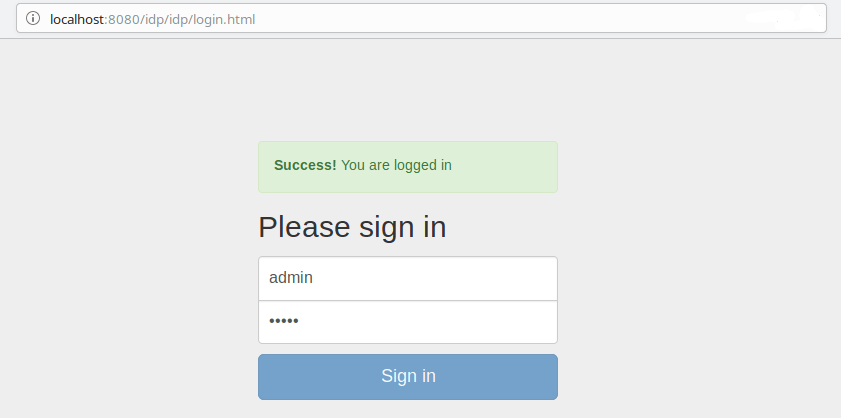Single-sign-on (SSO) for CUBA applications allows a user to log in to the multiple running applications by entering a single login name and password once in a browser session.
When using SSO, there are two types of applications:
-
Identity Provider (IDP) is an application that provides user authentication. It contains a login form for entering user credentials and checks the credentials against the list of registered users. Only one Identity Provider is allowed in an SSO environment.
-
Service Provider (SP) is a regular application that redirects to IDP for user authentication. SP should contain the same list of users as IDP (passwords do not matter though). SP provides authorization using CUBA security roles and access groups. There may be any number of Service Providers in an SSO environment.
An application can be an Identity Provider and a Service Provider at the same time, so you don’t have to setup a dedicated IDP.
CUBA SSO uses custom HTTP-based protocol and currently does not provide integration with systems using standard authentication protocols like SAML or OIDC.
In SSO environment, when a user enters a Service Provider URL, the SP redirects to the IDP page for entering login name and password. After successful authentication, IDP redirects back to the SP application and the user transparently logs in to SP.
Read addon Wiki for an additional information: link.
| Add-on | Platform |
|---|---|
| 0.1.x | 7.0.0 |
-
Add idp-addon as an application component to your projects (change the version part if needed):
com.haulmont.addon.idp:idp-global:0.1.x -
Configure add-on with application properties (Wiki)
This section is a short version of example from Wiki.
We consider an example of setting up SSO for two applications: Fish and Chips. Fish will be an Identity Provider and Service Provider at the same time, Chips will be a Service Provider.
-
Add the idp-addon via Studio with the following coordinates (replace x with bug-fix number):
com.haulmont.addon.idp:idp-global:0.1.x -
Configure aliases in the
hostsfile:Address Alias 127.0.0.1 fish 127.0.0.1 chips -
Configure IDP for the Fish project in
web-app.propertiesfile of thewebmodule:cuba.webAppUrl = http://fish:8081/app/ cuba.idp.serviceProviderUrls = http://fish:8081/app/,http://chips:8082/app/ cuba.idp.serviceProviderLogoutUrls = http://fish:8081/app/dispatch/idpc/logout,http://chips:8082/app/dispatch/idpc/logout cuba.idp.trustedServicePassword = mdgh12SSX_pic2 cuba.web.idp.enabled = true cuba.web.idp.baseUrl = http://fish:8081/app/idp/ cuba.web.idp.trustedServicePassword = mdgh12SSX_pic2 -
Configure IDP for the "Chips" project in
web-app.propertiesfile of thewebmodule:cuba.webAppUrl = http://chips:8082/app/ cuba.web.idp.enabled = true cuba.web.idp.baseUrl = http://fish:8081/app/idp/ cuba.web.idp.trustedServicePassword = mdgh12SSX_pic2 -
Start the Fish server by launching its
tomcat/bin/startup.*script or via Gradle:gradlew start. -
Go to http://fish:8081/app/ in your web browser. You will be redirected to the IDP login page. Log in with the
admin / admincredentials. Create a new user, for exampleu1. -
Start the Chips server by launching its
tomcat/bin/startup.*script or via Gradle:gradlew start. -
Go to http://chips:8082/app/ in the same web browser. If you are still logged in to the Fish application, you will be automatically logged in as admin to Chips. Create the same u1 user (password does not matter) in the
Chipsapplication.
Now you can log in as admin or u1 to both applications via the single login form,
and if you are logged in one application, the login process for the second
application will be automatic, bypassing the login form.


